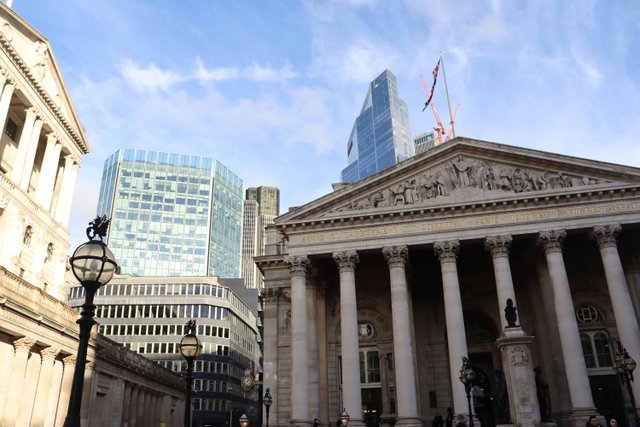The Real Reason Banks Hate Bitcoin - It's Not What You Think!
Banks are rattled, and it's not just about losing control. The real reasons are deeper, tied to power, profits, and a shifting world order. Here's my take, backed by hard data and my own crypto journey, to expose the truth. No financial advice - just a clear-eyed look at the fight.
The Threat to Control
Banks thrive on control - over money supply, transactions, and data. Bitcoin, with its decentralized blockchain, flips that script. Running on 18,000+ nodes worldwide, per Bitnodes, it's untouchable by any single entity. I read on Investopedia that banks process $7 trillion daily through centralized systems like SWIFT, charging fees for every transfer. Bitcoin's peer-to-peer network, settling $12 billion daily in 2025, per CoinMarketCap, bypasses those fees. No wonder banks like JPMorgan have called it a "fraud," per CoinDesk, despite launching their own blockchain projects. It's not just competition - it's a threat to their gatekeeper role.
Profit Erosion: The Fee Factor
Banks make billions from fees - think $30 for an international wire or 3% on card transactions. Bitcoin's transactions, averaging $0.50-$2 in 2025, per Blockchain.com, undercut that. I sent $100 in BTC to a friend overseas for $1; a bank would've charged $25. In 2023, global remittance fees hit $80 billion, per World Bank data, but crypto platforms like Ripple and Bitcoin slashed costs for users in places like the Philippines. Banks fear losing this cash cow, especially as 420 million people hold crypto globally, per Cointelegraph. It's not just ideology - Bitcoin's eating their profits.
Regulatory Nightmares
Banks operate in a tightly regulated world, spending $270 billion annually on compliance, per Thomson Reuters. Bitcoin's pseudonymous nature makes it a regulatory headache. In 2021, 0.34% of BTC transactions tied to illicit activity, per Chainalysis, small but enough to spook regulators. Banks face pressure to monitor crypto flows, with fines like HSBC's $1.9 billion for AML failures, per Reuters. I've seen posts claiming banks lobby against crypto to avoid costly oversight. Yet, they're hypocritical - JPMorgan's blockchain handles $6 billion daily, per Forbes. They hate Bitcoin's freedom but love its tech when it suits them.
The Power Shift: Financial Inclusion
Bitcoin empowers the unbanked, and banks can't stand it. Globally, 1.4 billion people lack bank accounts, per World Bank, but anyone with a phone can use Bitcoin. I read about Venezuelans using BTC to dodge 200% inflation, per Cointelegraph. Banks rely on controlling access - high fees and credit checks exclude millions. Bitcoin's open network lets anyone join, threatening banks' monopoly. In 2025, 2 billion crypto users are projected by 2030, per CoinMarketCap, shifting power to individuals. Banks aren't just losing customers - they're losing relevance.
My Crypto Lessons: Staying Grounded
I've had my share of crypto mishaps - lost 10% on an altcoin in 2023 chasing hype. Now, I hold 0.01 BTC ($1,148), bought via DCA on Binance, stored in a Safe wallet to avoid $3.7 billion in 2022 hacks, per Cointelegraph. I check CoinMarketCap for prices and CoinDesk for bank-related news. My portfolio's 5% crypto, 80% stocks, 15% cash, so I'm safe if markets dip. Banks' fear of Bitcoin taught me to question centralized systems and bet on decentralization.
The Real Reason Unveiled
Banks don't just hate Bitcoin because it's risky or unregulated - it's a direct threat to their control, profits, and relevance. It's bypassing their fees, empowering the unbanked, and forcing them to adapt or die. I'm no expert, just a guy who sees Bitcoin's potential to shake things up. Start small, secure your coins, and don't trust bank propaganda. Got thoughts on this clash? Drop a comment - let's unpack it and stay sharp!
